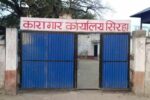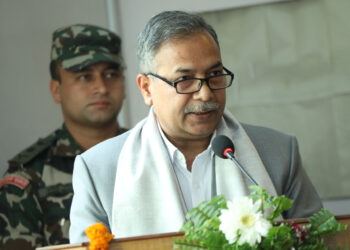KATHMANDU: Japan’s Nippon Cable Company has proposed employing mechanical parking to alleviate the growing problem of traffic inconvenience and pollution in the Kathmandu Valley.
Company’s officials at a program here on Wednesday suggested this citing the findings of a survey conducted in Kathmandu.
The survey study was related to feasibility study for business sustainability of mechanical parking and sustainability of its management in collaboration with the private sector.
The study was carried out with the support of Japan International Cooperation Agency (JICA).
It was stated on the occasion that use of mechanical parking would enable parking many cars in relatively a small parking space, the space occupied by the unsystematic parking could be utilized for other purposes and that the city’s beauty could be enhanced. Similarly, mechanical parking could help reduce pollution as well as the traffic congestion.
The company’s officials, citing the facts from the preliminary study, stated that mechanical parking would be appropriate in Kathmandu.
Company representative Sumpei Ichikawa argued that employment of mechanical parking would also help generate more revenue as many vehicles could be parked in relatively small area using this system of parking.
More, the parked vehicles would also be much secured. Urban Planning Commission vice-chair Saroj Basnet said improving the traffic management is very much inevitable in Kathmandu. However, he cautioned against instantly bringing a complicated technology.
Chief of the International Relations Secretariat, Mahesh Kafle said conclusion on whether to adopt mechanical parking or not would be decided after consultations and discussions at various levels. Information-Technology Coordinator of Truly Yours Pvt Ltd, Harish Agrawal shared the experience of operating pay-parking at Pyukha, Khichapokhari, Dharmapath, Pako and Durbarmarga in Kathmandu Metropolitan City.
He said the cars in the city area are kept parked for 90 per cent of the time and ply on the roads only for the remaining 5 per cent of the time, due to which there was much problem in parking.









Comment